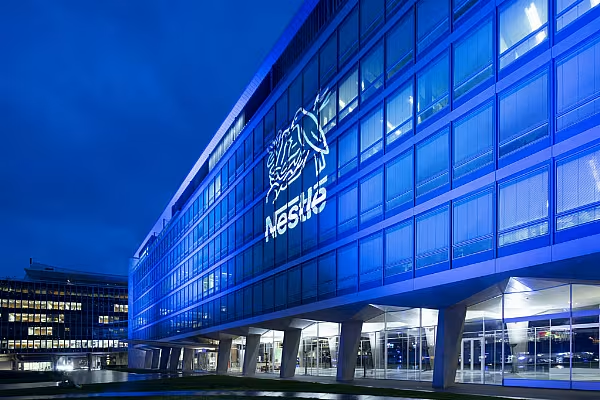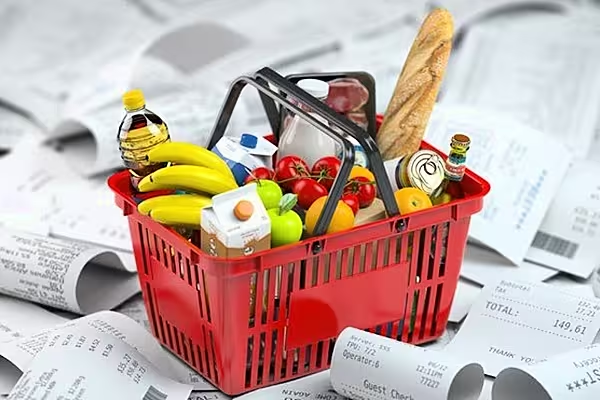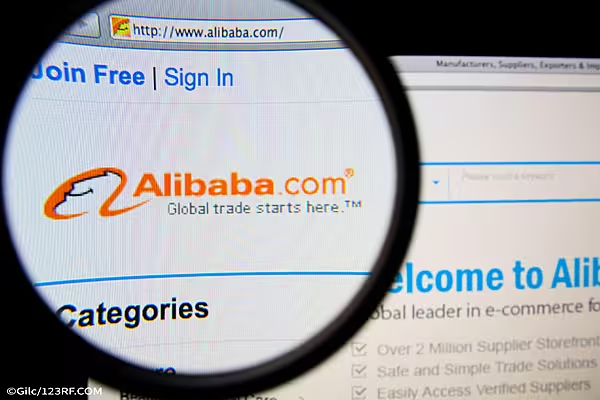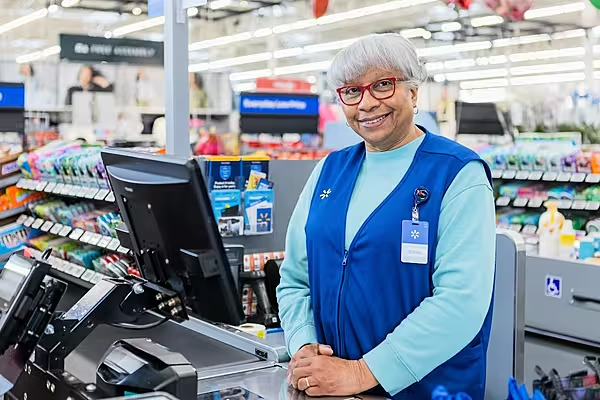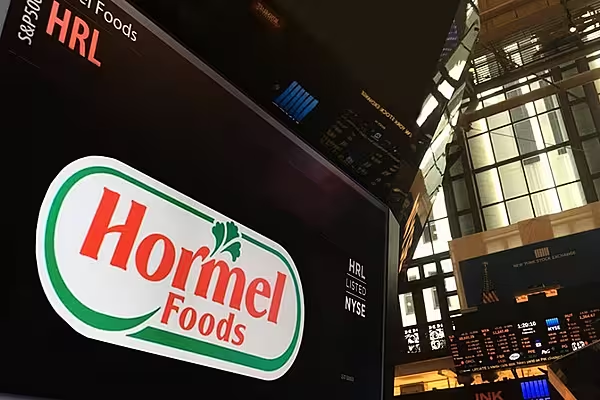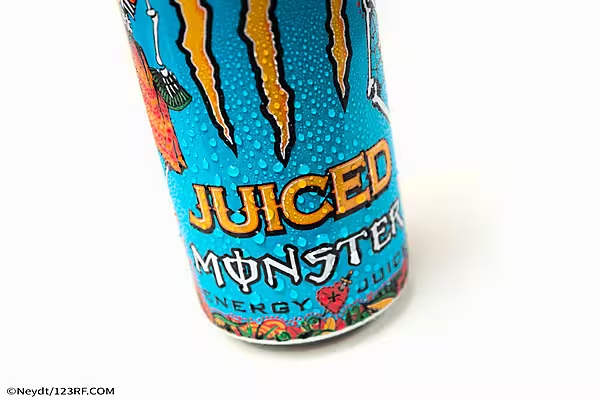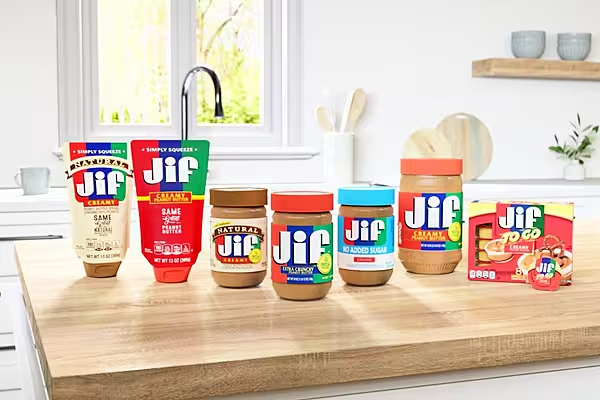When you’re the biggest food manufacturer in the world, change doesn’t happen overnight, and at Nestlé, the group’s journey to becoming a major player in e-commerce hasn’t been without its challenges.
Last year, Nestlé reported 13.4% organic growth in its e-commerce division, and the business is busy implementing a new digital-focused structure across all aspects of its operation, including in markets where online is in its infancy.
At the recent Shoptalk Europe exhibition in Barcelona, ESM editor Stephen Wynne-Jones caught up with Neel Arora, Global Head of eCommerce, and Jordi Bosch Argilagós, Global Head of Sales & Customers, Nestlé.
ESM: Nestlé previously outlined its ambition to achieve 25% of sales through e-commerce by 2025 – how is that progressing? Is it still likely to be achieved?
Jordi: It has been a while since we set out that ambition – I think it was before the pandemic. At the time, our weight of online sales was around 8%, so the most important thing was to act as a ‘call to action’ to our teams.
Since 2018, we have almost doubled our online sales – from around €8 billion to €16 billion – and as of the last quarter, the weight of online sales is above 17%. We will reach 25%, and are still aiming to do so by 2025.
The most important thing is that online sales are growing, and at the end of the day, the ultimate objective is to have a presence wherever consumers decide to spend.
In the years directly following COVID, there was a natural normalisation, and a slowdown, but now we are seeing an acceleration. That’s across multiple e-commerce models, social commerce, quick commerce. We are growing everywhere.
ESM: Where were the big wins in that? You said you doubled your online sales – what was the real accelerant behind that growth?
Jordi: COVID was definitely a clear accelerator, but beyond that, the decision to move e-commerce from being something ‘on the side’ of the organisation to being at the centre, and from that, building additional capabilities.
We developed a new e-commerce team, led by Neel here in Barcelona, which has been working over the past three years on supporting local teams, developing playbooks, and building an e-commerce academy that has trained more than 10,000 colleagues around the world. At the end of the day, this is what has triggered this growth.
Neel: One of the first things that we did was build transparency. The key thing that changed as a result of COVID was that more shopper missions were digitised, which previously weren’t digitised.
Before the pandemic, generally speaking, you went online to buy stuff that you knew you already wanted. But if you think about last mile delivery, that’s the digitisation of impulse purchasing. If you think about social commerce, that’s the digitisation of product discovery.
Also, during COVID, you had generations of consumers, like my parents for example, who had never bought online before, but suddenly were forced to. So now, you’ve got all these different missions and different consumers that are part of the broader digital ecosystem.
ESM: As a global company, Nestlé obviously has a presence in many countries in which e-commerce is in its infancy, and others in which it’s very progressed. From an organisation perspective, how do you manage that, and grow each market individually, while also having a company-wide approach?
Neel: This is something that followed on from our channel definition – the need to take that global view, understand the local realities, and see where countries are today and where they need to get to.
If you're in a market like Pakistan, where e-commerce is less than 5%, it's about putting the basics in place. We create a benchmark, and we support them with one-to-one workshops, to help them build a plan.
For the markets that are a bit more advanced, it’s about ‘okay, what comes next, how do I get to the next level of maturity?’ And then, in the most advanced markets, it’s about getting out of their way, providing resources when you can to help them accelerate, but also taking their best practices and scaling these back for the emerging and accelerating markets.
ESM: Ok, so you’re using the best practices of the most developed nations as a springboard for other countries. But going back to the target of 25% e-commerce sales, do you think that’s realistically going to happen in a market such as Pakistan, like you mentioned? Or is the policy around different targets for different markets?
Neel: Actually, what’s brilliant about markets such as Pakistan, is that they can teach a very advanced market, like the US, about last mile delivery and marketplaces. The missions are different, as is the trading infrastructure. With this incredible retail landscape that we have, each market can learn from another, as well as teach another market about a different strength or weakness that they have.
Jordi: That figure of 25% is a North Star. There are some markets that have already got there, and others that are well below it. But the important thing that we want to signal is that e-commerce is growing, and will keep growing, because adoption will keep growing.
Indeed, markets where the penetration is below the average are growing faster than markets where it is higher, so the digital influence is highly relevant across all markets.
ESM: Leadership starts from the top, but when it comes to things like e-commerce, you need to ensure your teams are on board. How are you seeking to engage and empower your workforce about the ‘digitisation journey’ that Nestlé is on?
Jordi: That's a fundamental change. The name of the game is integration. We have centralised teams, and we have a centre of expertise, because we need to keep growing new capabilities – for example on retail media, or analytics.
But at the same time, there’s no specific ‘online’ key account manager and ‘offline’ key account manager at our big clients, like Tesco for example. Everything is integrated.
ESM: You mentioned retail media there. Obviously retail media opens up so much opportunity for collaboration between retailers and manufacturers – how do you see the potential of retail media from a consumer goods perspective?
Jordi: This is a very strong trend, which we are seeing everywhere. In the United States, for example, it has been a reality for some time, not only with Amazon, but also with Walmart, Target, Kroger and other retailers. Now, you see it gaining importance in Latam, in Europe, in Asia as well.
I'm pretty positive about retail media in general – the potential to share data insights and leverage this information has the potential to be a win-win-win. It can be a win for retailers because it's an additional source of revenue, but it's also a win for consumers because when used correctly, it can enable the message to be personalised, improving the shopper experience.
It can also be a win for brands, because they can avail of more targeted campaigns and more personalised messaging, which in turn can trigger growth.
Neel: I think that’s a very nice way to put it. There's definitely a win-win-win, and we can see that it’s going to grow very quickly.
For me, working as part of the sales team, any opportunity we have to invest more in our customers is really exciting. The opportunity – and the challenge – is that it creates a different relationship between brands and retailers. There’s a duality to it that requires you to treat it carefully as well.
ESM: There’s been a lot of talk over the years about retailers and suppliers collaborating more, on things like logistics, or sustainability, and retail media has been a key to unlock that door. The data sets are being opened up for the first time, and it has been mutually beneficial for both retailers and suppliers.
Jordi: As you say, this is only opening the door, because more and more, with the kind of challenges that we are facing as an industry – and as a society – collaboration is the only way.
Consumers are more demanding. They expect a certain level of service. They expect rapid delivery. They expect us to be more sustainable. The only way to deliver on all these expectations at the same time is by working together.
That doesn't mean that it's easy – but our job is to try to overcome these barriers.
ESM: As businesses like Nestlé evolve, it’s going to require a different sort of mindset. Recruitment in the consumer goods sector is very challenging at the moment. How do you overcome that, and how do you attract people that have that mindset of ‘constant change’?
Jordi: That's a very good question. Internally, because of this, we launched what we call our 'next-generation sales module', because we realise that the retailers of the future are going to be very different from the retailers of the past, becoming ecosystems becoming much more digital, and so forth.
This requires new ways of working, new capabilities, and new skills. We don’t have all the answers. We definitely need to be more digital savvy, more agile, and more able to use analytics. So we are doing two things at the same time – one, working to attract general talent, but also, attract specialists.
We need specialists on e-commerce, we need specialists on retail media, but at the same time, we need to also raise the skills and develop the capabilities of our current teams.
ESM: So, agility is a prerequisite for anyone looking to join Nestlé?
Neel: Certainly we need agility to adapt to the extent of changes that are taking place. I think the only thing to add to what Jordi said, is that it's about culture. We’re seeing that being driven by our senior leadership – positive changes, bold digital ambitions, showing real intent. That filters down. I think that's really important.
ESM: So, you need to be able to think like a startup – even though you’re a 150-year-plus old organisation?
Jordi: The only thing that we know for certain is that the pace of change is going to accelerate.
Really enjoyed my chat with Neel Arora and Jordi Bosch Argilagós of @Nestle at @shoptalk Europe, about retail media and the challenges and opportunities associated with the digital transformation. #shoptalkeurope #nestle #fmcg #retailmedia #shoptalk pic.twitter.com/WmGv8FLkTM
— Stephen Wynne-Jones (@StephenWynneJo1) June 4, 2024
